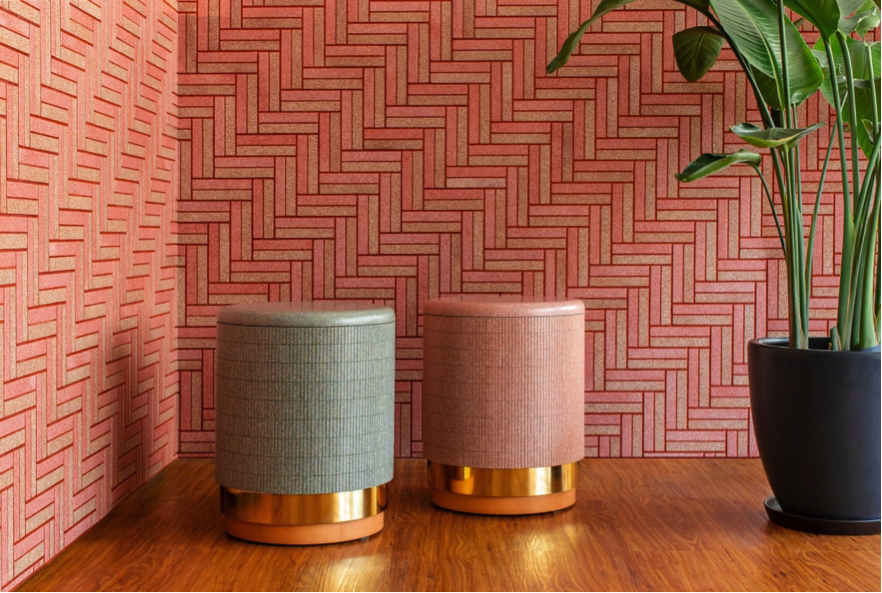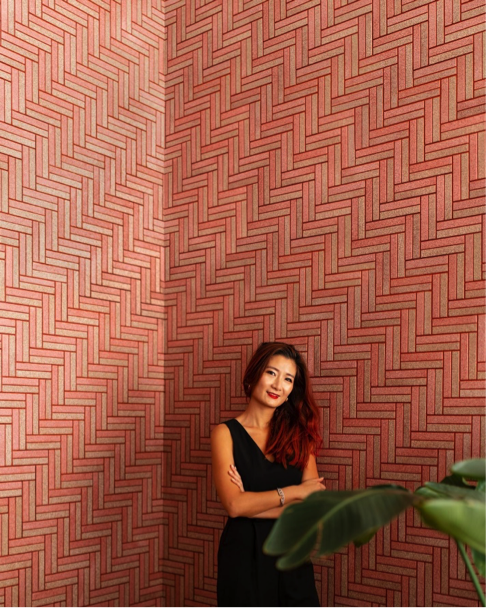Around 250,000 tonnes of chicken eggshell waste are produced around the world each year and much of this ends up in a landfill. Decaying eggshells produce odours, attract flies and contribute to methane emissions, which are reduced if the waste is reused before it rots.
To take a fresh approach towards eggshells, Elaine Yan Ling Ng, a Hong Kong designer in collaboration with Nature Squared, has created a collection of specked wall tiles made from eggshells discarded in bakeries, kitchens and Nature Squared’s eggshell-inlay studio.
Two years in the making, ‘Carrelé’ is produced in Nature Squared’s factory, in Cebu in the Philippines, where 3,000 organic white eggshells are crushed, combined with a binding agent, then cured at room temperature to create a square metre of tile.
Elaine Yan Ling Ng became interested in the use of eggshells as a material after finding out about experiments in using them for capping teeth and healing bones. “If solid bio-waste is good enough for the medical industry, that’s proof that it has great strength and stability and, with a change of formula, these properties may potentially be used in other industries such as architecture,” she said.

Lay Koon Tan, who co-founded Nature Squared, says, “We want to divert larger volumes of waste away from landfills and into new methods to create unique and innovative products at more accessible prices.”
While CArrelé tiles are currently only wall tiles, Elaine Yan Ling Ng revealed that Nature Squared plans to extend the collection to include flooring. With its ability to be moulded into various shapes and sizes, the eggshell formula also has the potential for interior moulding or strips of wood.
In addition to the tiles, Elaine Yan Ling Ng has also produced a series of minimalist stools and accessories such as tea light holders and trays formed from eggshells. Other egg-based designs include tableware objects made from out-of-date eggs, and unusually shaped and playful vegan edible alternatives to chicken eggs.
The ‘Carrelé’ collection represents a broader approach to sustainable design, specifically an agenda which Ng says “strives to achieve and improve social sustainability, local work opportunities and the inclusive and circular design, and reduce local methylation.”
-Akansha Jain

